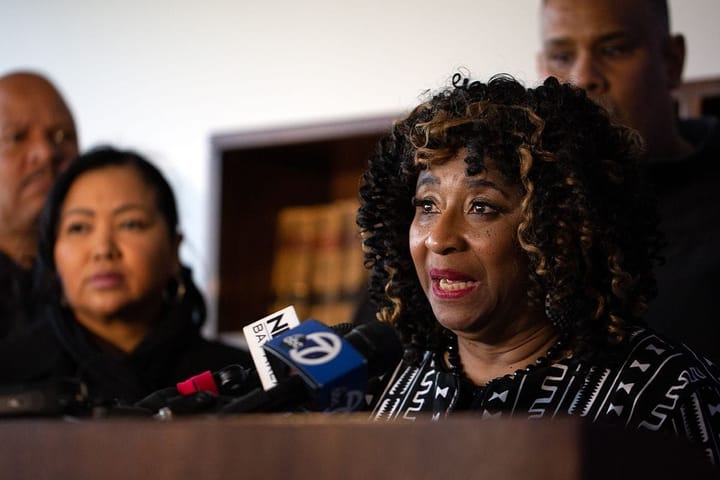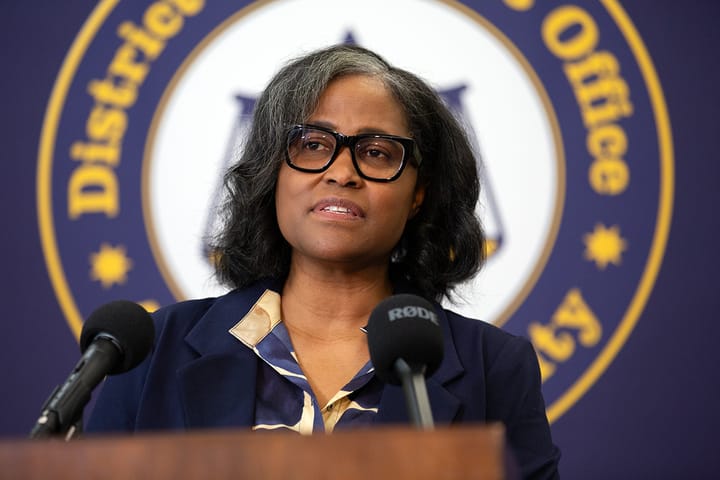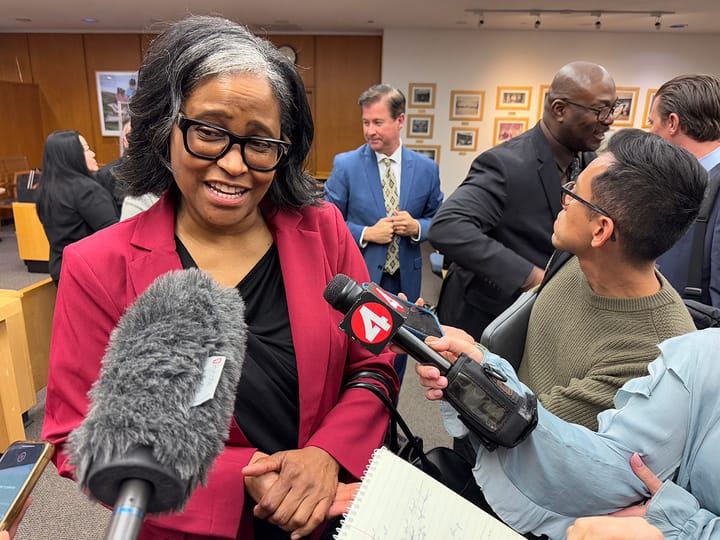Critics, fans of DA Pamela Price clash at Oakland crime meeting
Thursday night's public safety meeting with DA Pamela Price showed a divide in the community but also common ground.
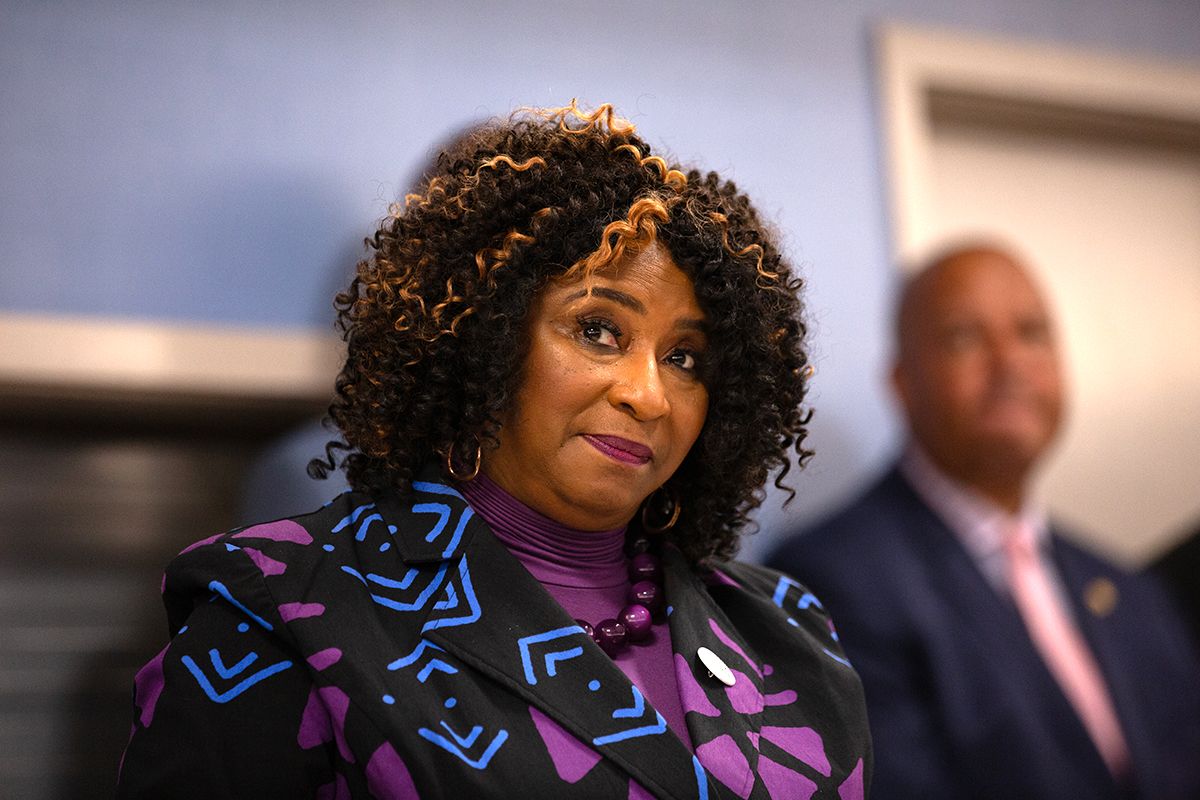
Hundreds of people turned out Thursday night for a community meeting in Oakland focused on public safety and Alameda County District Attorney Pamela Price.
Some came to question her. Others came to defend her. In the end, many were left with frustration about rising crime in Oakland and what, if anything, can be done about it.
It may have been the hottest ticket in town, with people lining up to get inside Montclair Presbyterian Church more than an hour before the scheduled meeting time. Crowds and heavy traffic drew curious questions from passersby who happened to be in the neighborhood for other reasons.
A Zoom link allowing for 100 attendees quickly filled up, blocking many would-be listeners and causing technical problems for organizers and a delay to the event.
Some people at home even had attendees call from inside the room so they could listen over the phone lines when the Zoom link failed.
"This was scheduled to be … a nice little neighborhood association meeting," said organizer Carolyn Burgess of the North Hills Community Association in starting remarks. Nodding at Price with a smile, she added: "And somebody’s pretty much in the news nowadays."
Price: DA's office is just one piece of the equation
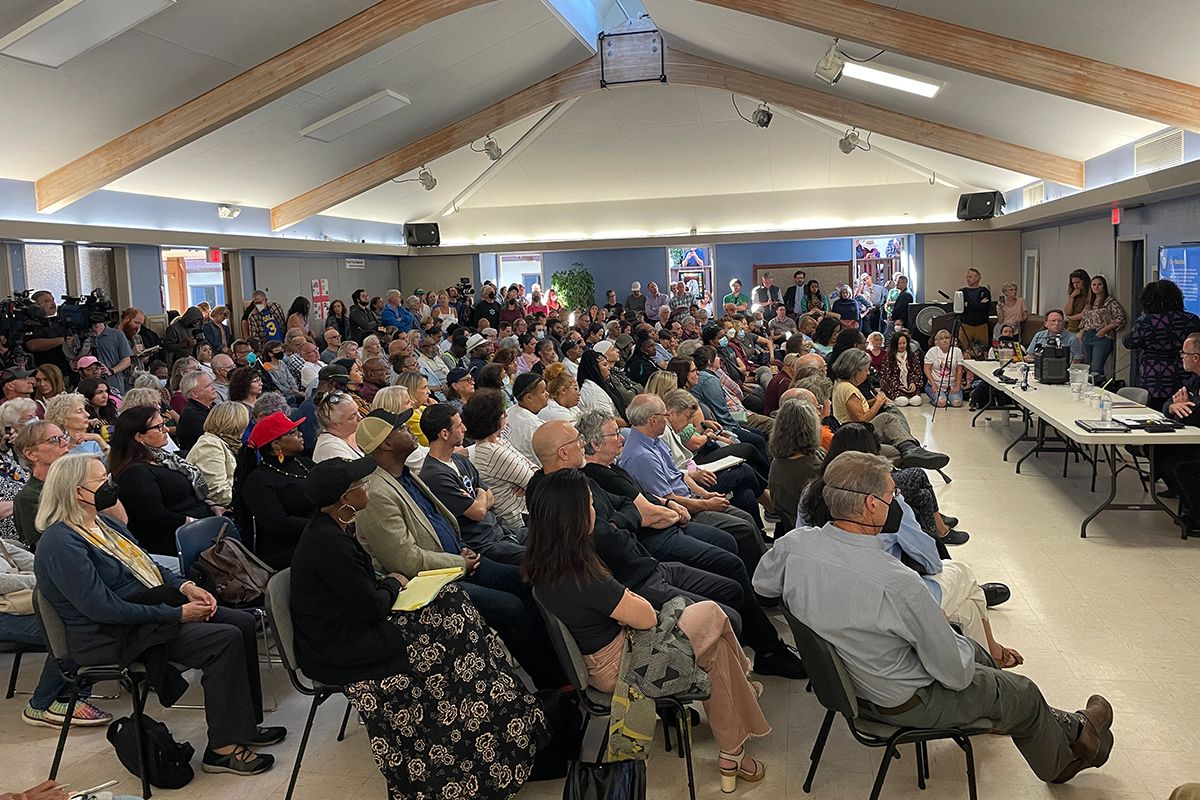
The event drew an overflow crowd: In addition to those lucky enough to get seats, attendees stood along every wall of the room, which had a listed capacity of nearly 200 people. Others sat on the floor or listened from outside Montclair Presbyterian through open doors and windows.
Seemingly every Bay Area news outlet was also in attendance, with a bank of TV cameras at the back of the room and news photographers and print reporters scattered throughout.
Read more about DA Pamela Price on The Scanner.
Earlier in the day, meeting organizers — the North Hills Community Association, Montclair Neighborhood Council, Rockridge NCPC and neighborhood groups from Adams Point and Piedmont Pines — had advised attendees to bring a "photo ID for admission" due to "the numbers expected."
Word also spread at one point that only neighborhood residents would be allowed inside. But ultimately that did not come to pass.
The reason for such high interest in the town hall was twofold: rising crime in Oakland and ongoing scrutiny of Pamela Price herself, a progressive prosecutor elected in November on a pledge to reshape her office's approach to criminal justice as Alameda County's first Black DA.
Critics have blamed Price for neglecting victims and being too lenient on criminals, while supporters have said the blame is misplaced. They say Price has been demonized in the media, that no DA can control crime rates and that she is doing what voters elected her to do.
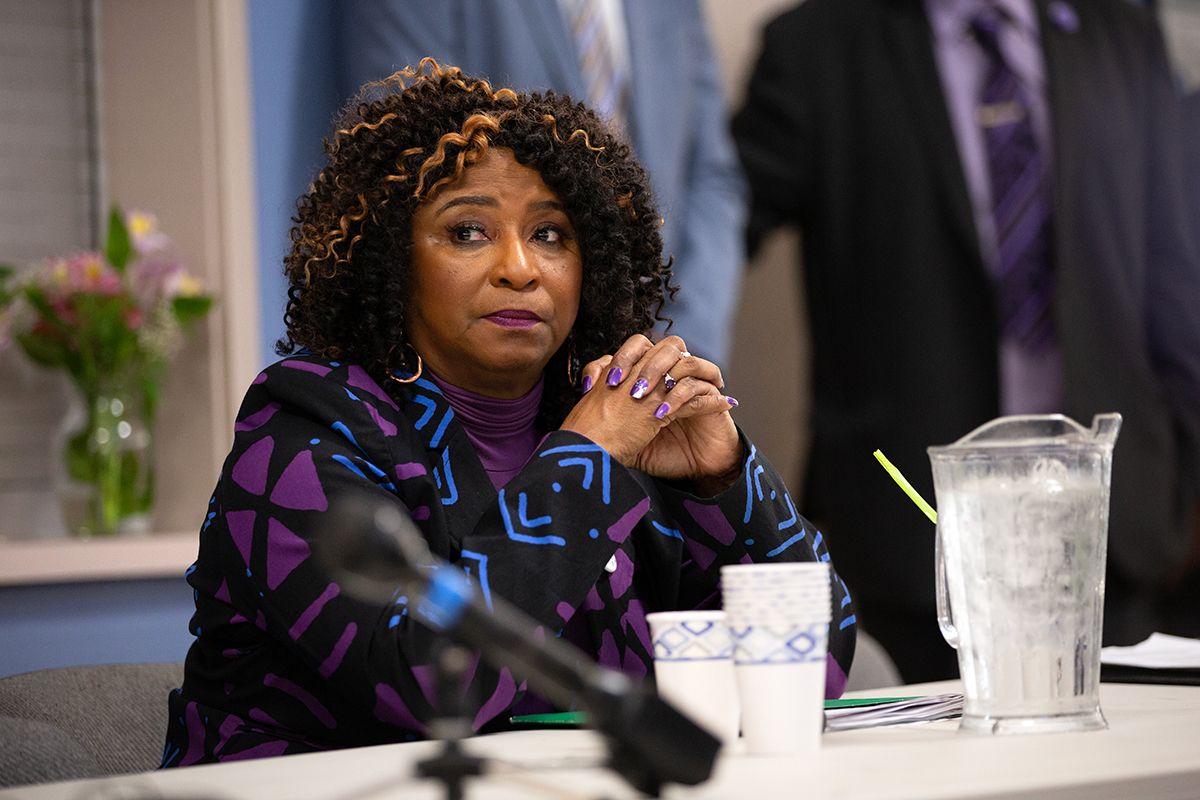
On Thursday night, Price placed her work in the context of a criminal justice system that involves not only police and probation officers but the city of Oakland, the Oakland City Council, the Alameda County Board of Supervisors and her own deputies.
"I have about 35 charging deputies," she said. "I am not sitting anywhere in an office making a decision about who gets charged."
(In fact, one of Price's earliest changes was to standardize charging and sentencing decisions with an eye toward reducing potential penalties, limiting the discretion of prosecutors and requiring more stringent review by Price herself for anyone who wishes to deviate from her guidelines.)
Price said one of her main goals Thursday night was to offer context she felt had been missing from the public discourse, particularly given the lack of understanding around the role of the DA in the first place.
"Very few people were paying attention to what the district attorney was doing before now," she said.
Organizer: "We want to all feel a love for Oakland"
The meeting got off to a rocky start, in part due to technical difficulties related to the overloaded Zoom.
Then Price launched into a lengthy PowerPoint about what the DA's office does and how it is structured. It featured a series of slides entitled "Criminal Justice 101."
But many attendees, on Zoom and in the room, weren't having it. They wanted to know when they could ask their questions and when questions they had already submitted would be posed.
In response to those concerns, Price zipped past many of her slides to move faster into public comments. As the hours wore on, however, in response to questions and remarks, she repeatedly referenced the slides she had not been able to show.
To her credit, Price stayed at the church for more than two hours — and independently volunteered to answer more questions when the organizer announced that the meeting was about to end.
At times throughout the night, emotions ran high, with people shouting comments and questions from all corners of the room.
One young man who was given the microphone more than an hour into the event, when very little ground had been covered, said it had been "a huge waste of time" because people were "too busy pointing fingers." He urged his fellow attendees to "come together and tackle these problems step by step."
An Oakland city staffer managed to restore order by calling for mutual respect.
"If you are screaming or talking loud then we are going to pass you by," she said. "You are not going to be heard if you are disorderly."
Thursday night's meeting began with a prayer from Montclair Presbyterian's pastor, who said he hoped the night would be a "holy experience" where residents would recognize each other "across divisions" as neighbors who love Oakland and also "love each other."
Hundreds of people here for the Pamela Price meeting organized by Oakland neighbors. The meeting was set to begin at 6 but started late. Lots of support here for Price but also frustration - many want to share their crime concerns instead of listening to Price’s presentation. pic.twitter.com/EaT5kNdzVw
— The Berkeley Scanner (@BerkeleyScanner) July 28, 2023
Organizer Burgess said the goal of the night was to "raise awareness" about "some of the changes that are going on" and address "misunderstandings" about Oakland public safety.
"We want to all feel safe. We want to all feel a love for Oakland. And it’s been pretty difficult lately," she said. "Sometimes, just like you read on the news —there’s too much in the media and it really scares us."
According to the latest Oakland crime statistics, violent crime is up 15% this year compared to 2022.
Police say there has been a 22% increase in robberies, with nearly 2,000 reports already in 2023. That includes a 10% increase in carjackings.
This week, an alarming video of an attempted carjacking in the Oakland Hills went viral online — stirring up intense community concern.
UPDATE: Would-be armed carjacker banged on driver’s side window but did not fire shots, and woman drove around Dodge Charger near Skyline & Keller in the hills, per @oaklandpoliceca pic.twitter.com/nAkD85w0oq
— Henry K. Lee (@henrykleeKTVU) July 26, 2023
Police have now announced arrests in that case, but nerves remain frayed, with many Oakland residents saying they are afraid to go out due to violent crime as well as skyrocketing auto burglaries, which are up 44% amid the Bay Area's relentless "bipping" trend.
Oakland carjacking victim: "I don't feel safe here"
One woman who spoke Thursday night shared how she had been the victim of an Oakland Hills carjacking one morning in early July.
"I was pulled out of my car at gunpoint," she said. "They took my bag. They took everything.… I don't feel safe here."
The woman, who described herself as an immigrant who had lived in the neighborhood for 20 years, asked why such crimes were allowed to go on with such "impunity and brazenness."
"What are we doing to prevent this?" she asked. "How do we solve this?"
Another woman described having been with a friend from Berkeley who was attacked by youth in Oakland.
"She was dragged by her hair across a sidewalk. We ended up putting her in an ambulance and taking her to the emergency room," she said.
Her friend who was attacked had pledged not to come back to Oakland, she said.
"I just want to say that there must be consequences," she said. "There are no consequences for these children."
Many questions about how to handle youth crime
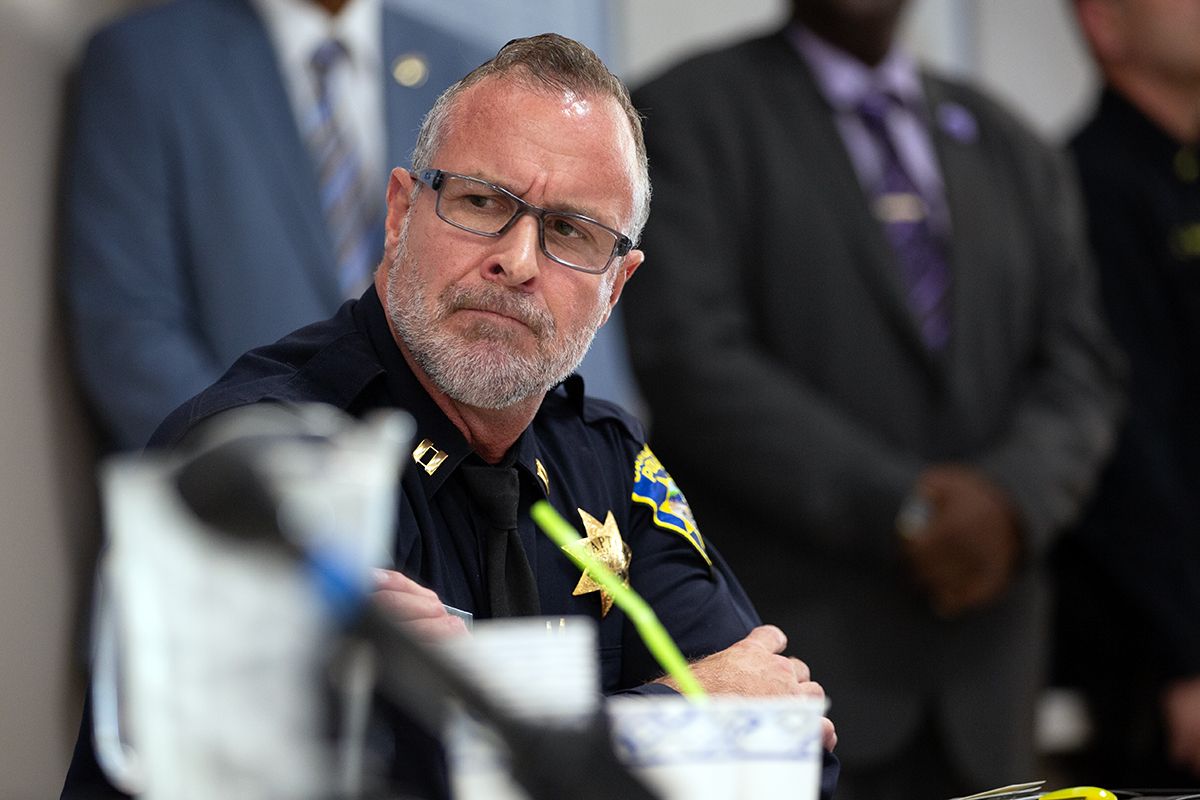
Throughout the night, some attendees expressed frustration about the seeming lack of consequences for some of Oakland's most serious and high-profile crimes, from homicide cases to a recent robbery series involving youth who were later released without charges.
Others in the audience injected their own questions as a counterpoint: Had the youth been identified by witnesses? If not, what was Price to do?
A large portion of the night focused on that youth robbery series, which included an incident at Market Hall in Rockridge in May.
The series preceded a massive meeting with Oakland Councilman Dan Kalb where residents said women had been targeted and that Kalb had failed to address public safety concerns. (Kalb attended Thursday night's meeting. He made several remarks but was not prominently featured.)
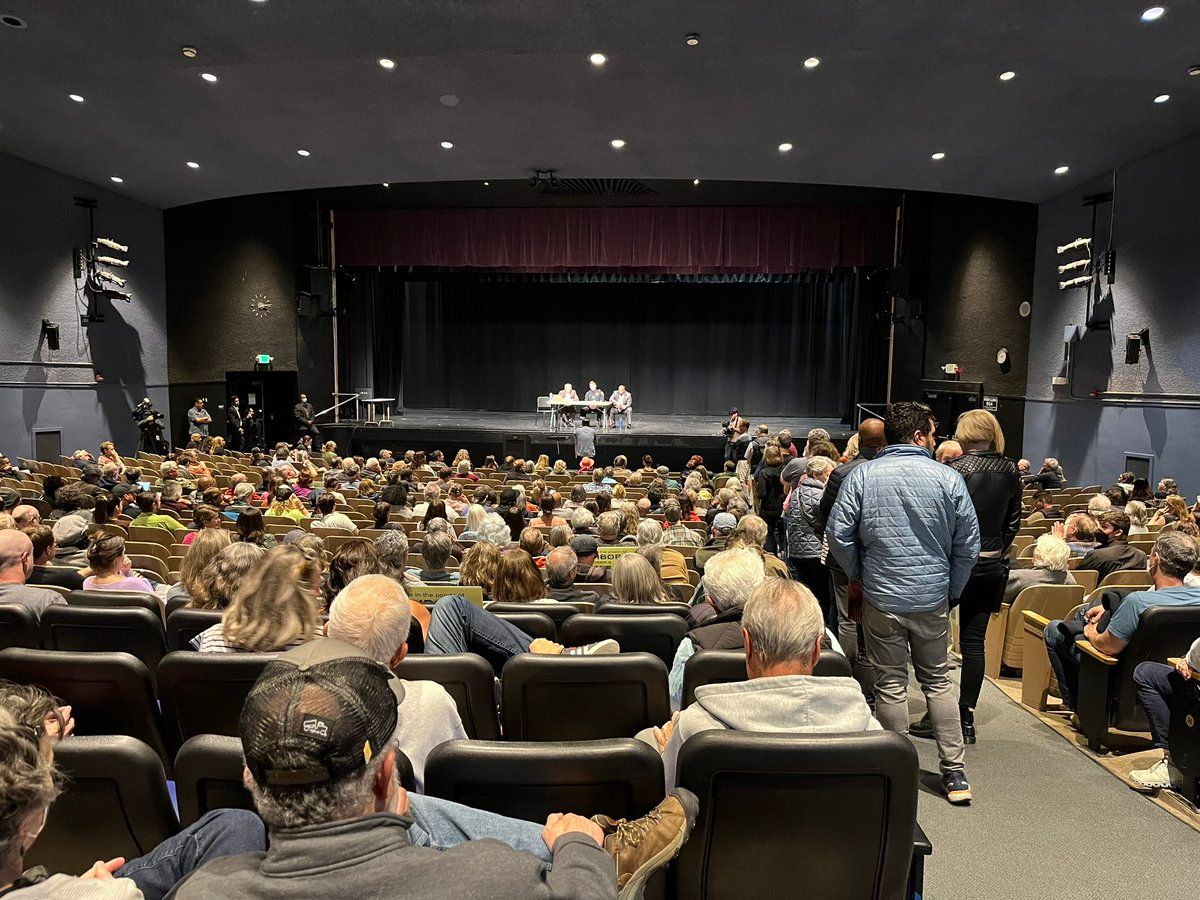
On Thursday night, OPD Capt. Clay Burch and DA Price each talked about how their agencies dealt with the youth robbery case, which they said remains open, with work actively underway.
Burch said police cannot control what happens when it comes to charging but also said, with a nod to Price, that OPD just met with the DA's office about how to "present cases in a way that she’s looking for."
Part of that discussion, he said, focused on "what further can we do for these cases to bring them to fruition when it comes to charging."
Price spoke more specifically about the case, noting that the involved youth wore masks and hoodies and that different members of the group were alleged to have taken part in different incidents. (OPD said the group was linked to 35 holdups.)
Price said video evidence police had found "was not clear enough to identify them" and that witness identifications had been weak. She said her charging DA had determined that, so far, the case could not be proven beyond a reasonable doubt.
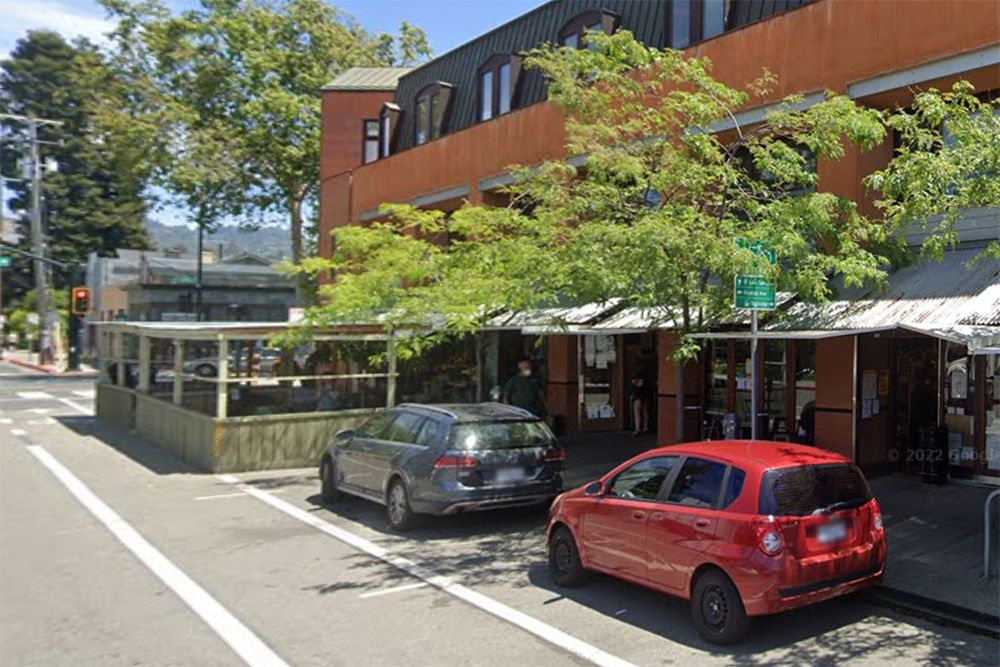
One meeting attendee asked Price what she had done to "follow" the youth after they were released.
"What have I done to follow these kids?" she asked. "The district attorney’s office does not have a division or a deputy or the budget to follow kids anywhere in this community. It is not part of our responsibility."
Price said she had asked her deputies whether it might be possible for her to send a letter to parents to let them know their children had been identified in relation to criminal activity.
"I don't have that answer yet," she said. "We need more programs for young people. But I don’t have the budget and it is not my responsibility to create that."
She continued: "It is absolutely true that we don’t have a mechanism to hold them accountable after they get out."
DA Pamela Price supporters came out strong
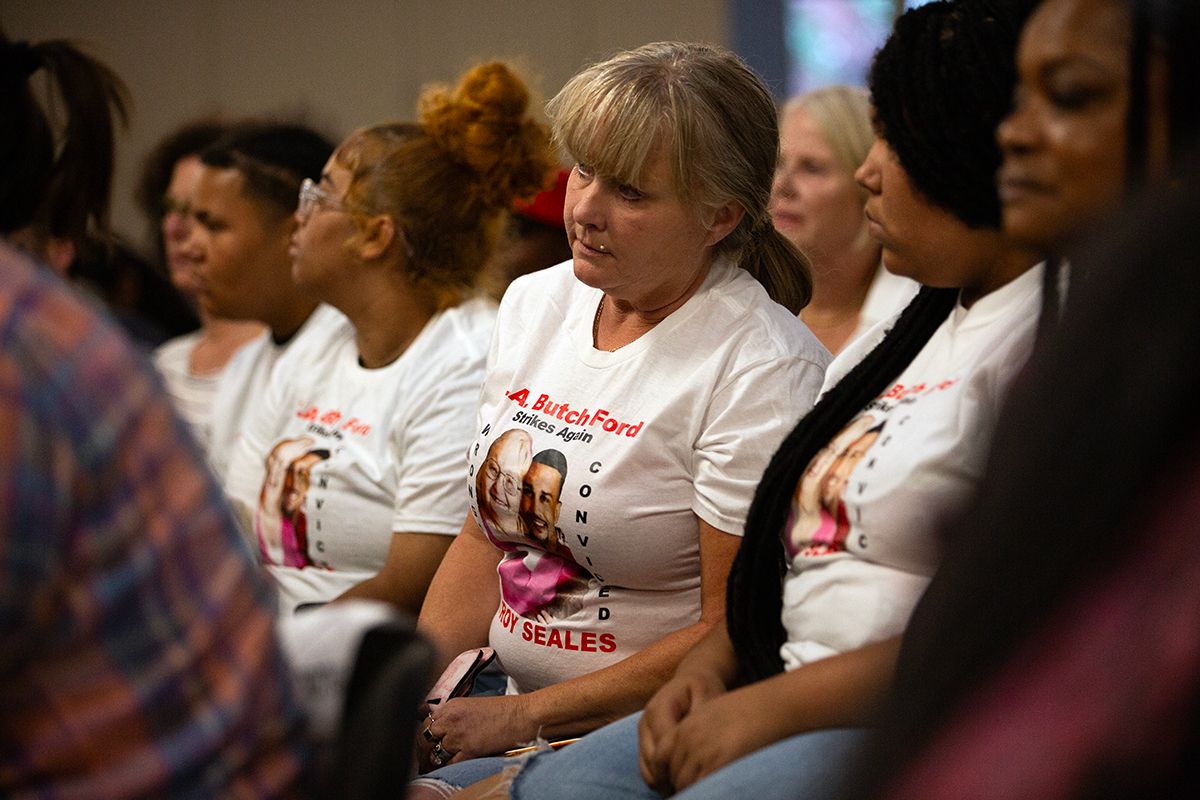
In addition to the neighborhood residents who attended Thursday's meeting with questions about crime and accountability, many people also came out to support DA Pamela Price.
Price herself had asked them to do so in a Facebook post last week.
"We know that opponents of criminal justice reform plan to attend this meeting and use it as a forum against the policies that Alameda County voters mandated DA Price to deliver. We cannot let them succeed," she wrote on her campaign Facebook page. "That's why I'm asking you to join us at the town hall. We need to show up in force and make sure that our voices are heard."
Throughout the night supporters cheered Price on, offered testimonials about how she had inspired them and focused their comments on root causes and grassroots solutions to public safety.
One woman credited Price for her work to reduce lengthy prison sentences while another described how she had been moved at a convention when she heard Price speak.
"The light that I felt was something I felt would never come for us," said the woman, who is Black, describing what it was like to see Price in charge.
"You don’t know what we have been through," she said, addressing the room. "Before she came … the police — you railroad our children. You call them gang leaders."
One person described Price as the "great Black hope."
Some talked about the need for more traffic enforcement, and more city grants for local businesses that are vandalized and burglarized.
Others talked about the importance of attending city meetings, including an Oakland public safety meeting scheduled for Sept. 12 that will focus on funding for violence prevention efforts, which could be on the chopping block.
Attendees talked about volunteering and coming together as a community, including through participation in Oakland's neighborhood councils, which are collaborative efforts involving residents and city staff.
One woman, who wore a shirt that read, "It’s hella easy to just choose love," urged everyone in the room to take action rather than offering criticism from the sidelines.
"Yes, crime is not good. But we can defeat crime by being involved," she said.
One neighborhood organizer, who privately described the meeting as a "shitshow," kept her public remarks focused on the bigger picture when it was her turn at the mic.
"How do we stop this hamster wheel of crime?" she asked. "Because that’s really the question."
NAACP calls out "failed leadership" by Price and others
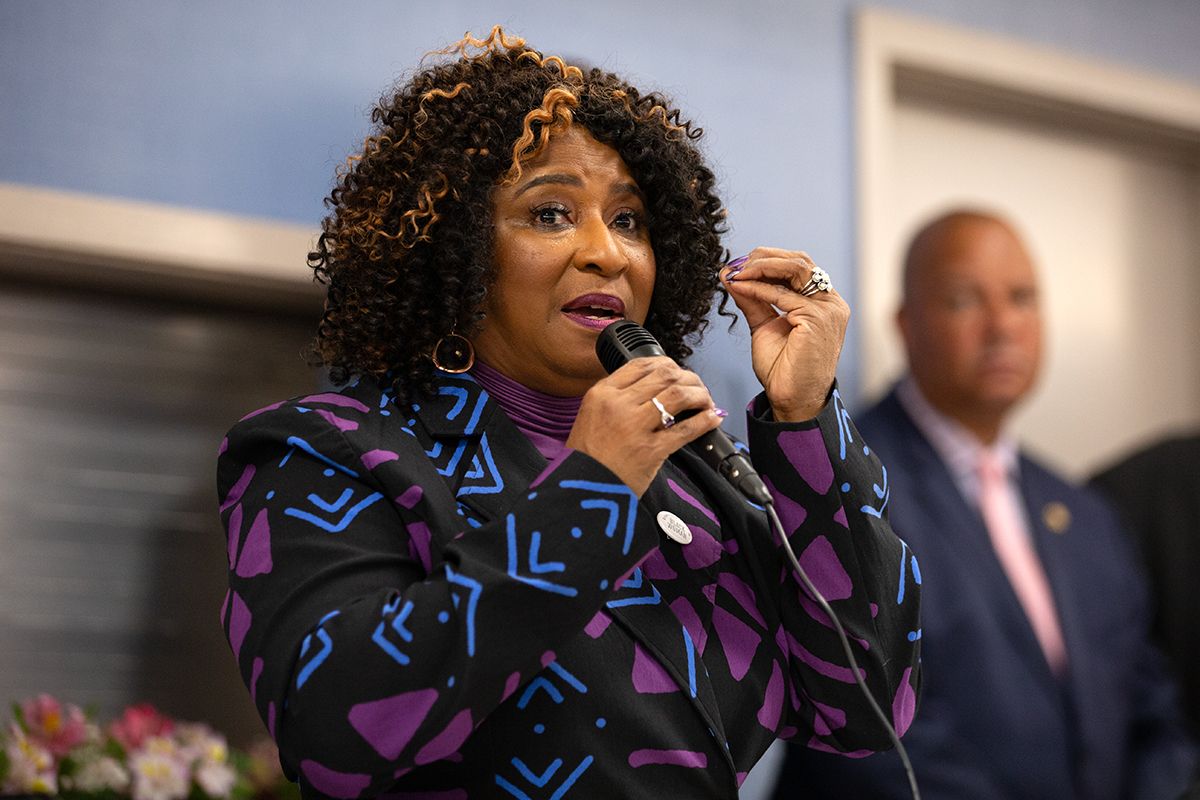
Thursday night's meeting came at a crucial time for Price with a nascent recall effort heating up, organized in part by critics who say she has prioritized the needs of defendants over crime victims and their families.
The recall campaign, which has dubbed itself "Save Alameda For Everyone," or SAFE, filed its initial paperwork earlier this month and launched a bare-bones campaign website this week.
Organizers are now working to finish some preliminary steps before filing their notice of intent, which allows for the collection of the signatures needed to get on the ballot.
On Thursday, the Oakland branch of the NAACP also came out with a strong public statement about the "intolerable public safety crisis" underway in Oakland.
"African Americans are disproportionately hit the hardest by crime in East Oakland and other parts of the city," the group wrote in a letter signed by branch president Cynthia Adams and Acts Full Gospel Church Senior Pastor Bishop Bob Jackson. "We call on all elected leaders to unite and declare a state of emergency and bring together massive resources to address our public safety crisis."
They wrote that women, Asians, street vendors, media outlets and PG&E workers had all been victimized by recent crime in Oakland, leading residents to stay home in fear or leave the city altogether.
"Everyone is in danger," the group wrote, calling out Price's policies as one of the causes of rising crime: "Failed leadership, including the movement to defund the police, our District Attorney’s unwillingness to charge and prosecute people who murder and commit life threatening serious crimes, and the proliferation of anti-police rhetoric have created a heyday for Oakland criminals. If there are no consequences for committing crime in Oakland, crime will continue to soar."
Listen to the DA Pamela Price public safety meeting
Organizers recorded the event on Zoom. We will share the link if it becomes available.
In the meantime, listen to raw meeting audio from The Berkeley Scanner.



